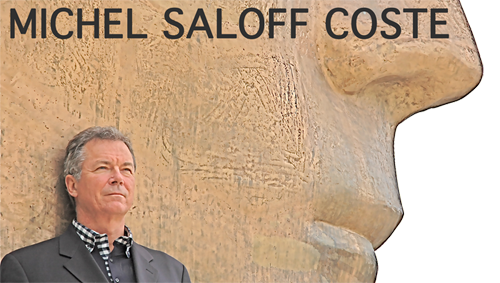JEUDI 29 JANVIER 2015
08h30-08h45 Acceuil at Enterprise Development Group 930 Roble Ridge Road Palo Alto,CA. 94306
08h45-11h00 God and Contemporary Science In
this Templeton Award-winning presentation, Philip Clayton
defends the continuing viability of theistic belief in an age of science.
Designed as an introduction to the field of religion and science, this book
covers many of the major topics and thinkers in the contemporary discussion. It
defends in particular a panentheistic doctrine of God as the theological
position that best reconciles divine action and contemporary science.
Panentheism, on Clayton’s view, is the doctrine that the world exists within
the divine, although God is also more than the world.
Philip Clayton is the Ingraham Professor at Claremont School of
Theology in Claremont, California. Clayton has taught or held research
professorships at Williams College, California State University, Harvard
University, Cambridge University, and the University of Munich. His research
focuses on biological emergence, religion and science, process studies, and
contemporary issues in ecology, religion, and ethics. He is the recipient of
multiple research grants and international lectureships, as well as the author
of numerous books, including The Predicament of Belief: Science, Philosophy,
Faith (2011); Religion and Science: The Basics (2011); Transforming Christian
Theology: For Church and Society (2009); and In Quest of Freedom: The Emergence
of Spirit in the Natural World (2009). He also edited The Oxford Handbook of
Religion and Science (2006). In books and lectures, Clayton works to formulate
constructive theological responses to developments in contemporary science and
philosophy. He has also been a leading advocate for comparative theology and
the internationalization of the science-religion dialogue. As P.I. of the
“Science and the Spiritual Quest” program and as Provost of a multi-faith
university, he worked to expand these fields to include Muslim and Jewish scholars,
the Dharma traditions of India, and the religious traditions of Southeast Asia.
Complexity” is therefore not
(yet?) the Grand Unified Theory of cosmic evolution, a single scientific
framework adequate to describe all physical processes. Complexity does not
increase in a simple, straight-line fashion, any more than entropy does. Nor
are all emergent properties more complex than the lower-level systems that
produced them. We recognize that simpler systems combine to produce new, more
complex systems. But we don’t currently have sufficiently general language to
describe and quantify this process. This is one of the great scientific puzzles
of our day.
11h00- 12h00 Promenade dans le parc adjacent. Discution
tournante avec chacun des participants.
12h00 13H00 Déjeuner
avec EDG Lisa Friedman, Hermann Gear et Bill Zhao . Restaurant chinois Su Hong Eatery 4256 El Camino Real,
Palo Alto, California 94306 Tel : 650-493-3836. Réserver la grande table ronde.
13h00-14h30 China
and the Silicon Valey Une réunion exeptionnelle ou nous decouvrons la
manière donc la chine aborde la Silicon Valey avec l'associé chinois de EDG
Bill Zhao. Ce sera aussi l'occasion de préparer aussi notre futur voyage en
chine.
China Fast
Growing Overseas Investment :
•
World’s second
largest economy
•
World’s fastest
economic growth
•
One of world’s
largest sources of foreign direct investment and trade
•
Chinese
enterprises are looking for investments in the Silicon Valley and other
business cooperation
14h30-16h00 Débriefing
de L'ensemble de séminaire, réponse aux questions et préparation des plans
d'actions opérationnels pour le futur. Projet de développement des deux Start Up : Nudge et
YourAvatar. Synthèse de l'ensemble du séminaire par Jean Charles Cailliez.
16h00-20h00 Suite et fin de la
visit de Cantor avec les amis et
experts Français et Américan de la Silicon Valley.
Apéritif et diner au
Cool Cafe à Stanford.
Soirée de cloture at
Enterprise Development Group 930 Roble Ridge Road Palo Alto,CA. 94306

Aucun commentaire:
Enregistrer un commentaire